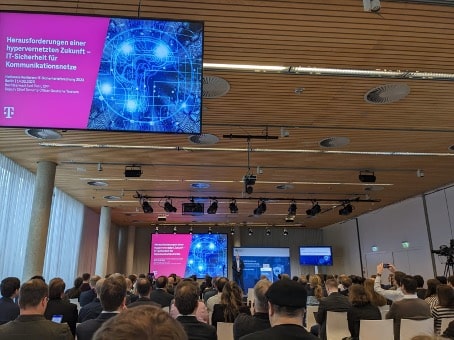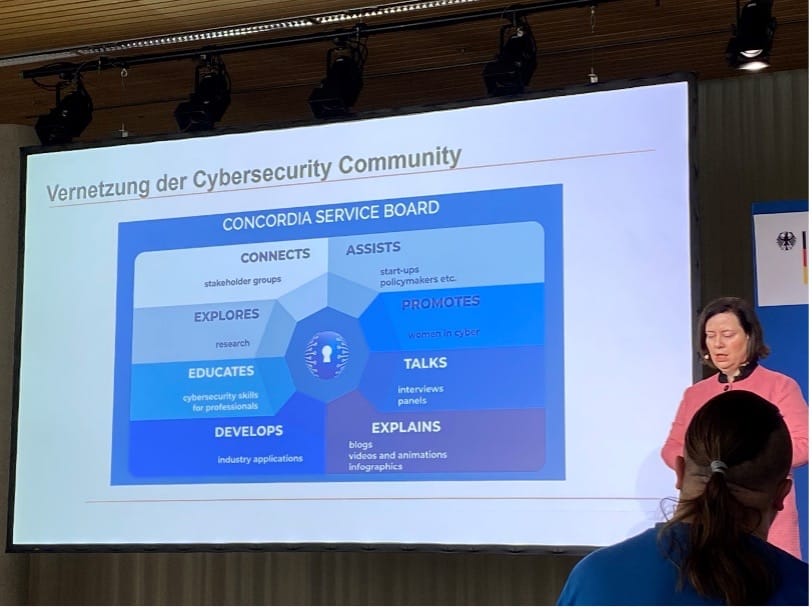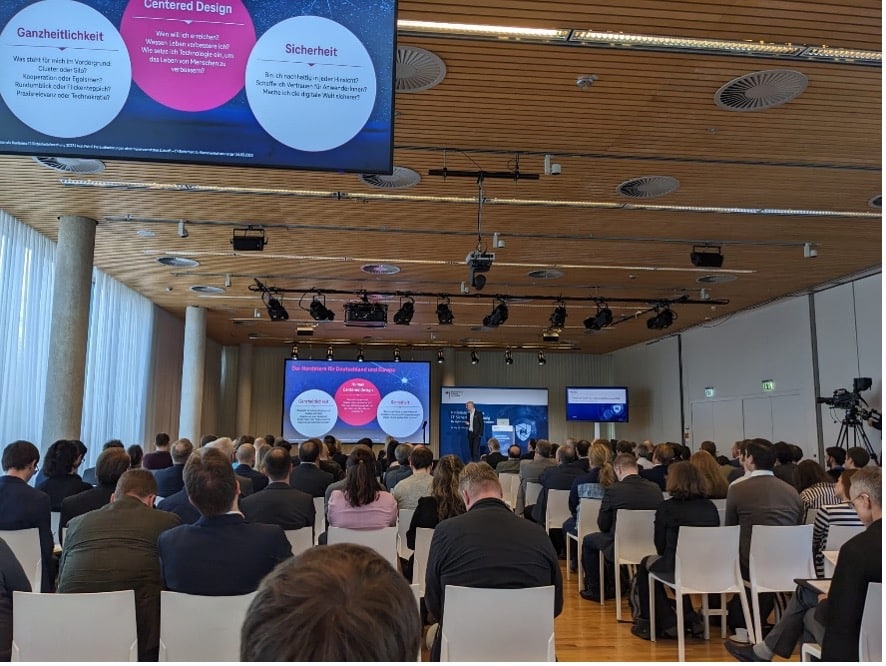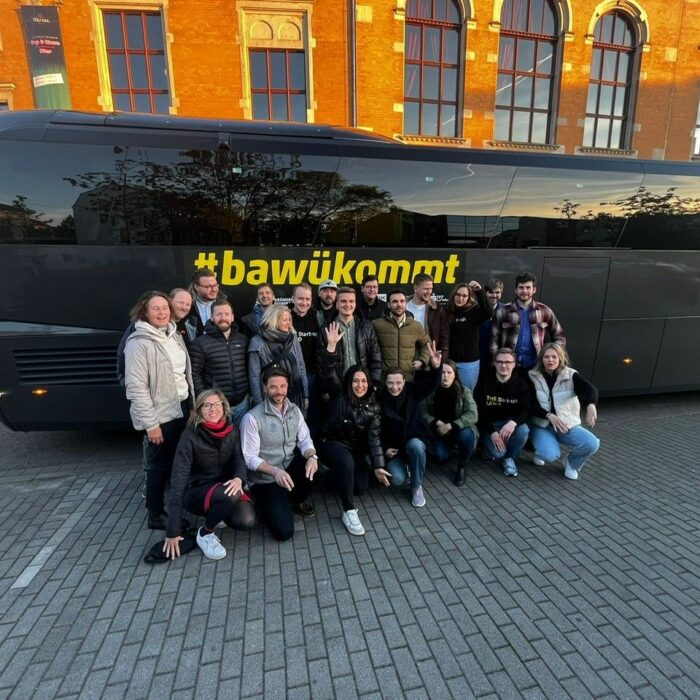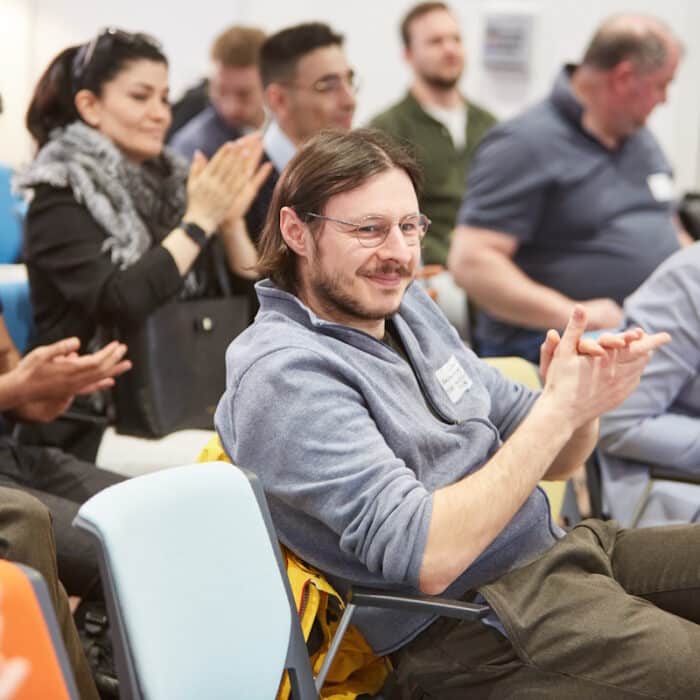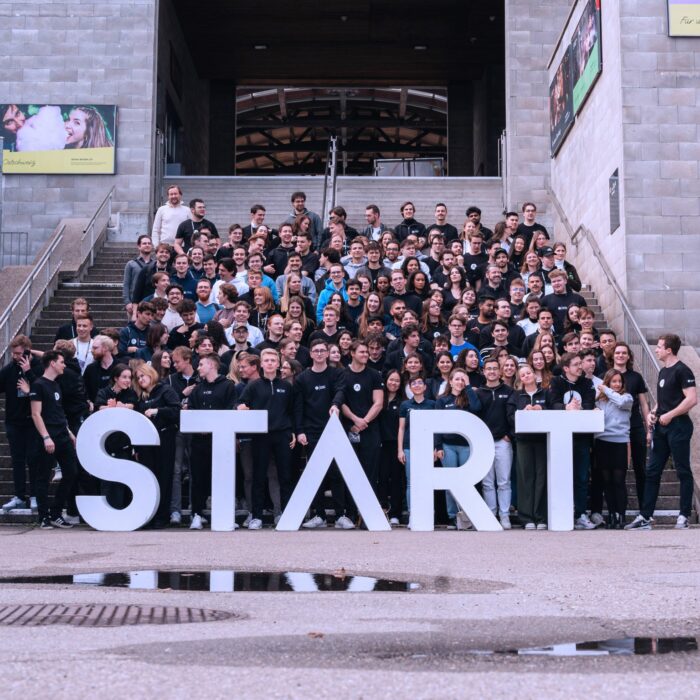StartupSecure KASTEL team visits national IT security conference in Berlin
05.04.2023
Sylwia Wasz
Event
The German Federal Ministry of Education and Research hosted the National Conference "IT Security Research 2023" in Berlin from March 13 to 15, 2023. The conference was held under the motto "Strengthening the digitally networked society" and presented the entire range of research in the field of IT security. Numerous stakeholders from politics, business, the start-up scene, research and from the university sector from all over Germany exchanged views on trends, current challenges and solutions in the field of IT security for three days. Our team from StartupSecure KASTEL was also present this year.
The topic of “young talent” was clearly present throughout the event. Right at the beginning, Mario Brandenburg (BMBF), Dr. h.c. Marit Hansen (Independent State Center for Data Protection Schleswig-Holstein), Dr.-Ing Kai Jansen (PHYSEC GmbH), Prof. Dr. Andreas Tünnermann (Fraunhofer IOF), and Prof. Dr. Michael Waidner (Fraunhofer SIT / ATHENE) exchanged ideas on the topic of “How to successfully transfer IT security research into the digitally networked everyday life of business and society”. Important was the comment of Dr.-Ing Kai Janse, who called for more creativity, freedom and transparency at universities and colleges. Among other things, he referred to transparent and understandable license agreements. The audience was also involved in the panel. In response to the question “What school grade would you give the transfer system of research results into practice in Germany?”, most voted for grades 3 and 4.
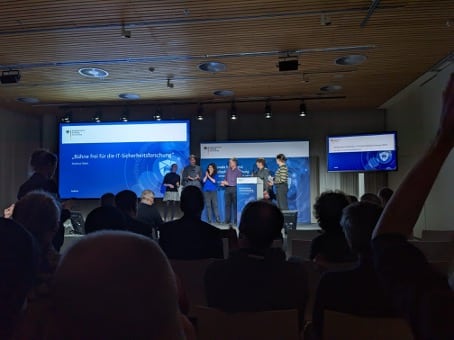
Similar statements were made during other sessions. Axel Petri, the lawyer and Deputy Chief Security Officer of Deutsche Telekom, also emphasized in his keynote speech on the topic of “Challenges of a hyper-networked future – IT security for communications networks” that in the field of IT security the recruitment of young talent and specialists is the most important homework. This topic plays an enormous role for current IT trends such as digitalization, increasing number of attacks on KRITIS and growing number of end devices under control and thus less dependency and more control. Therefore, Petri presented his North Star for Germany and Europe “Holism. Human Centered Design. Security.” as a concrete solution.
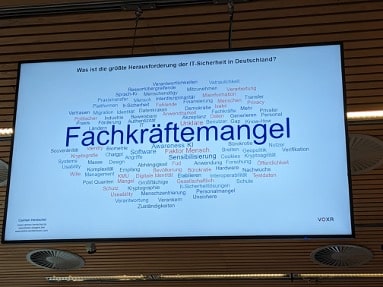
StartUpSecure was presented and positively evaluated as an opportunity for recruiting young talent and skilled workers. On the last day of the event, founders who have used the program to implement their start-up ideas exchanged ideas.
Jan Stijohann from Langlauf Security Automation GmbH brought it to the point: Startup Secure is an incredible opportunity for founders. He also gives further advice to the interested party, such as that pilot customers are enormously relevant, the project sponsor is an important partner, and that a strong focus in business is essential in the “brutally competitive market.”
In research, on the other hand, questions about the following topics dominate alongside transformation and innovation: What are the threats in the digitized world? How can IT security research be successfully transferred to the digitally networked everyday life of business and society? How can we make IT security user-friendly and applicable? And in which disciplines must research collaborate to strengthen the hyperconnected society of tomorrow?
The BMBF strives to bring the answers closer to the broader society in particular. Therefore, the ministry defined science communication as the central task of IT security. The strategy was already put to use during the conference: complex content was presented in an understandable and entertaining way during various interactive lectures, science slams or by presenting IT topics through a cartoon exhibition. Prof. Dr. Stefanie Molthagen-Schnöring of HTW Berlin summed up the positive impact of science communication on research with a quote: “Scientists can benefit from entering into conversations with a lay audience with curiosity and openness to other ways of approaching the world and perspectives, and can also gain impetus for new research questions as a result.” (Wissenschaftsrat 2021, p. 42f.)
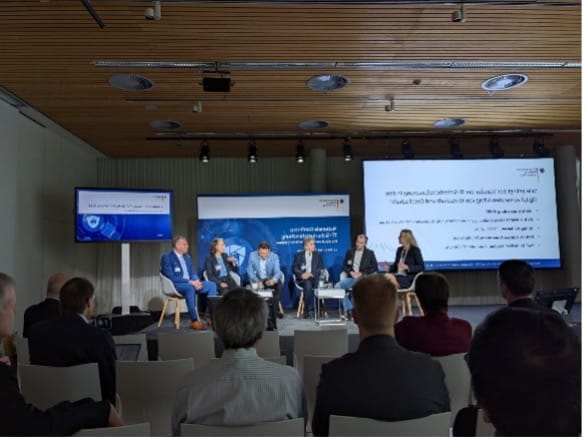
The StartUpSceure KASTEL aroused a lot of interest among the different stakeholders from politics, research and the start-up scene. We were able to inspire many participants for our offers and events and at the same time take away many impulses from the event, such as these in particular: The importance and role of IT security will increase significantly in the future – especially due to unstable geopolitical situations and the increasing digitalization of society.
